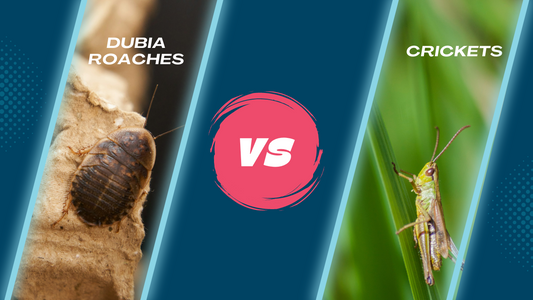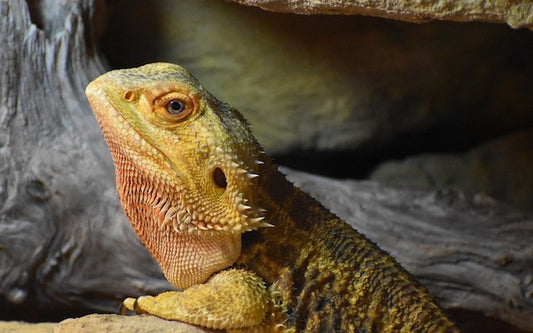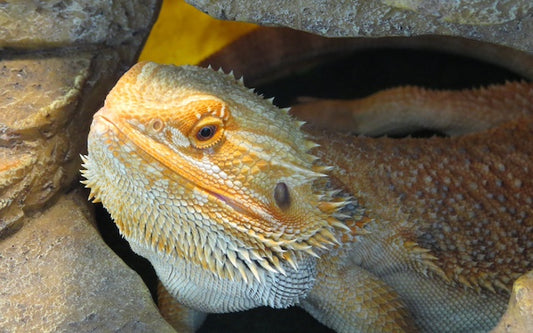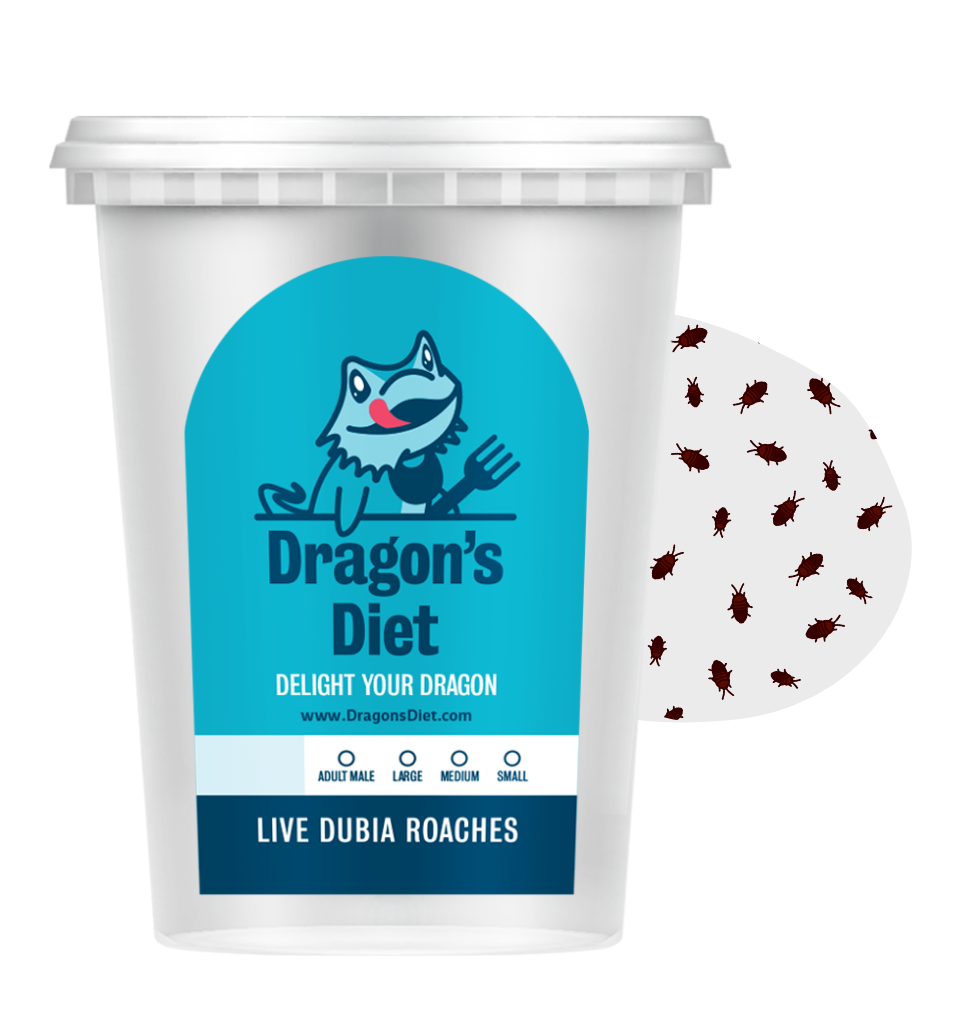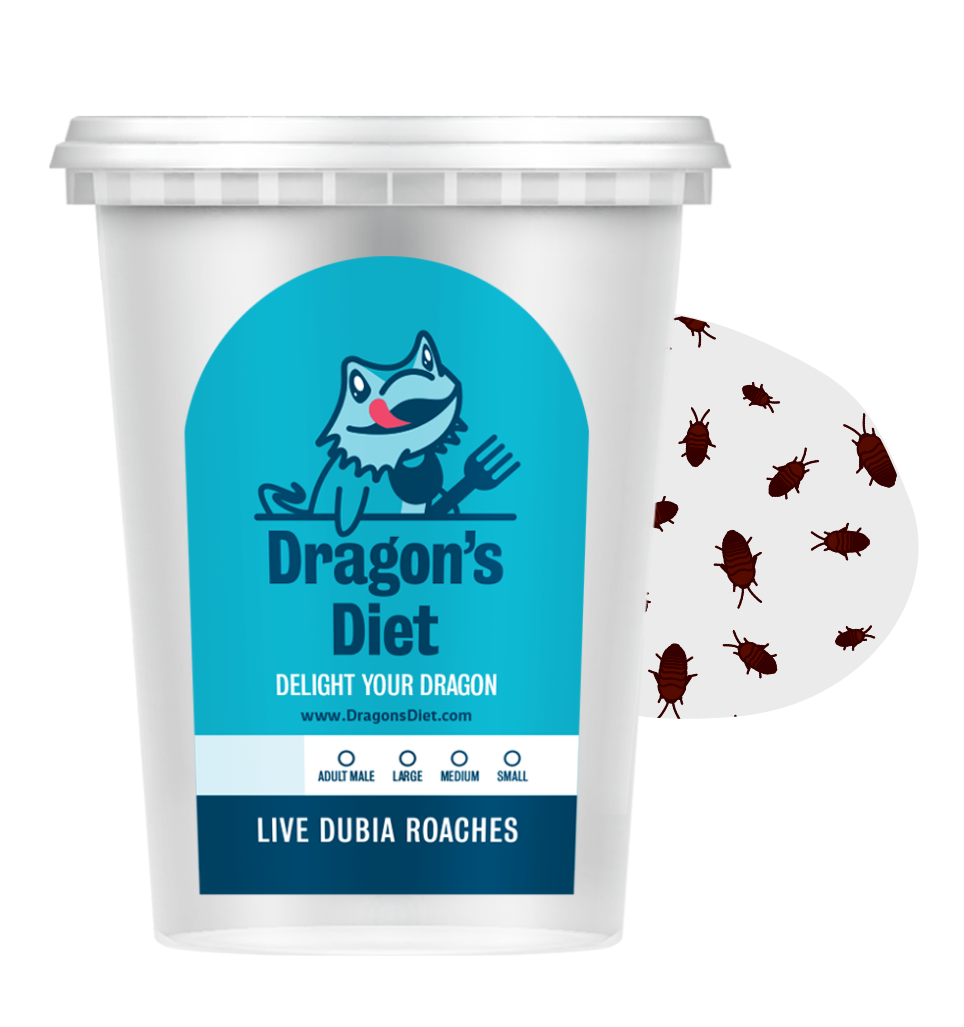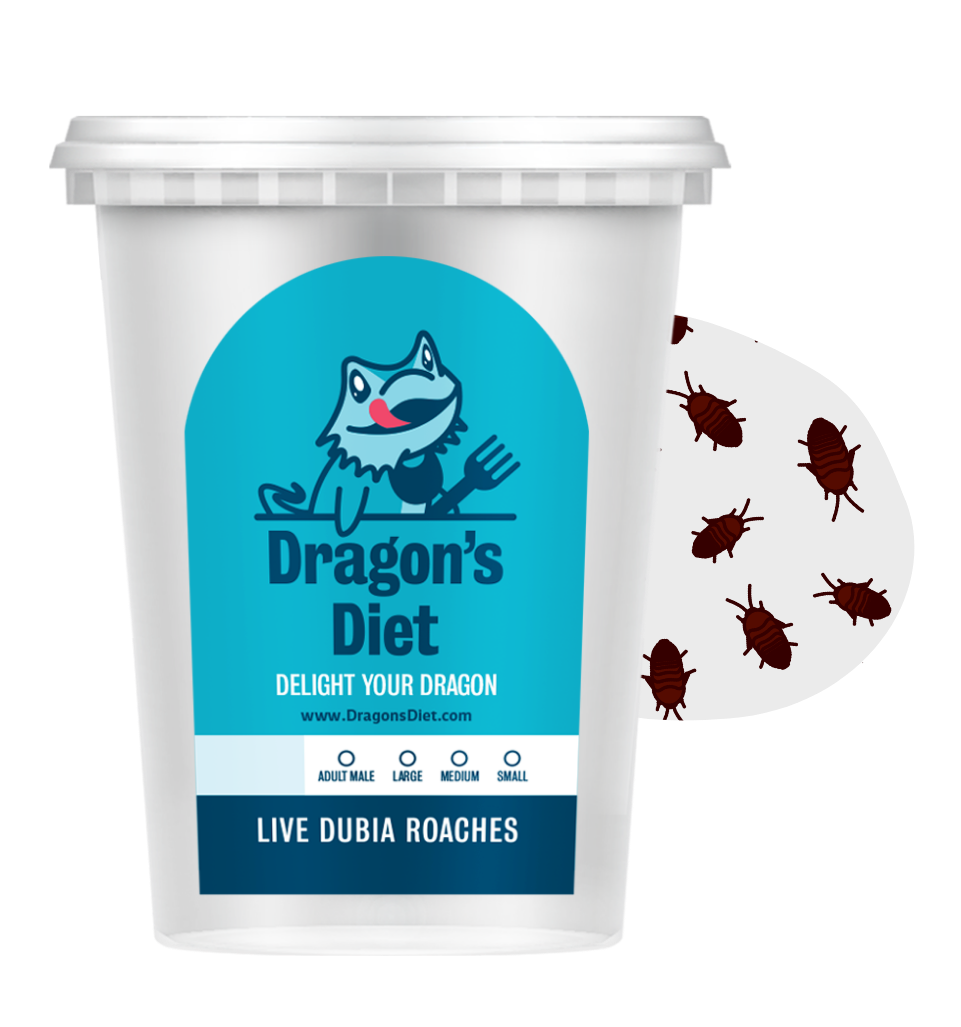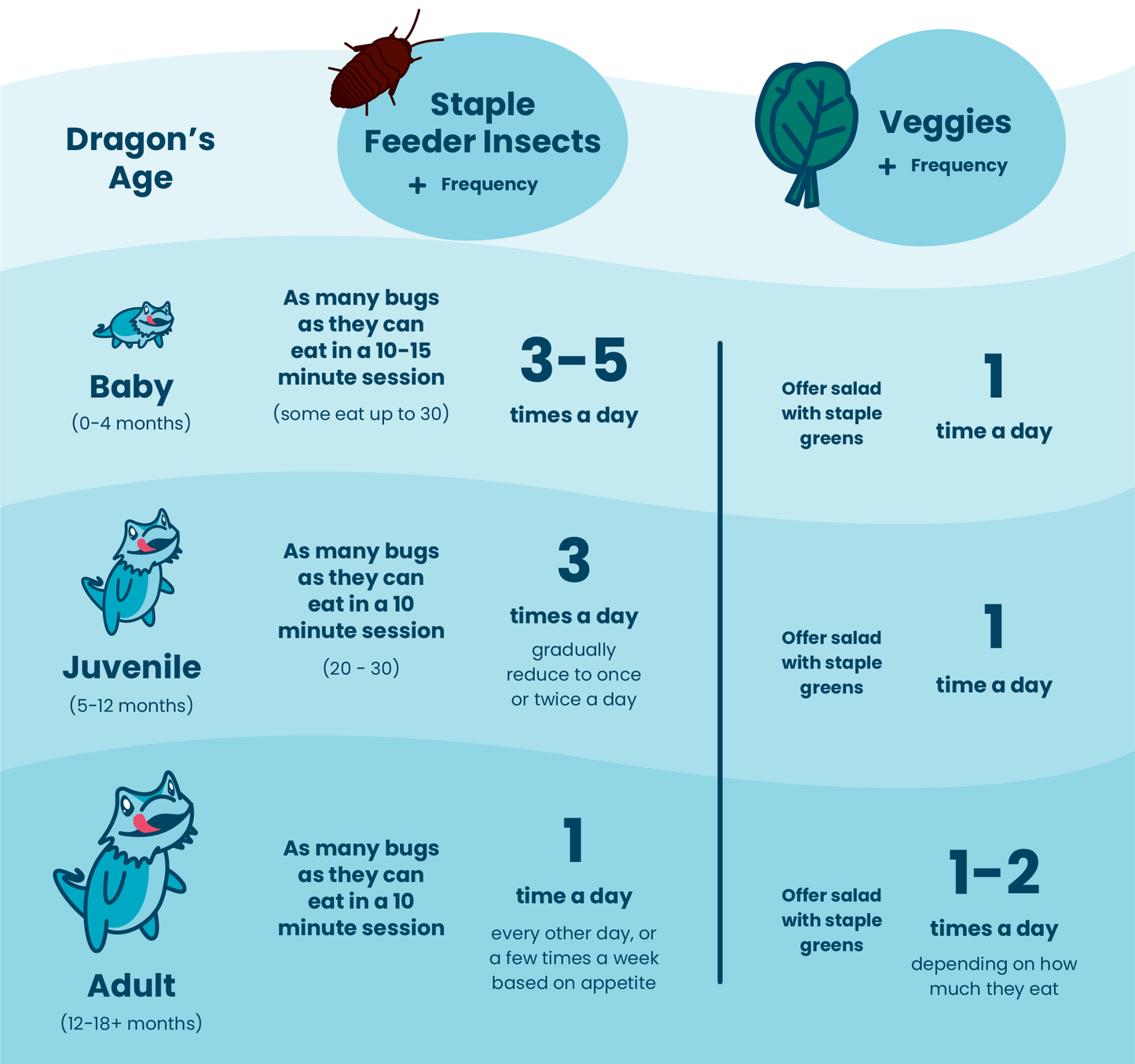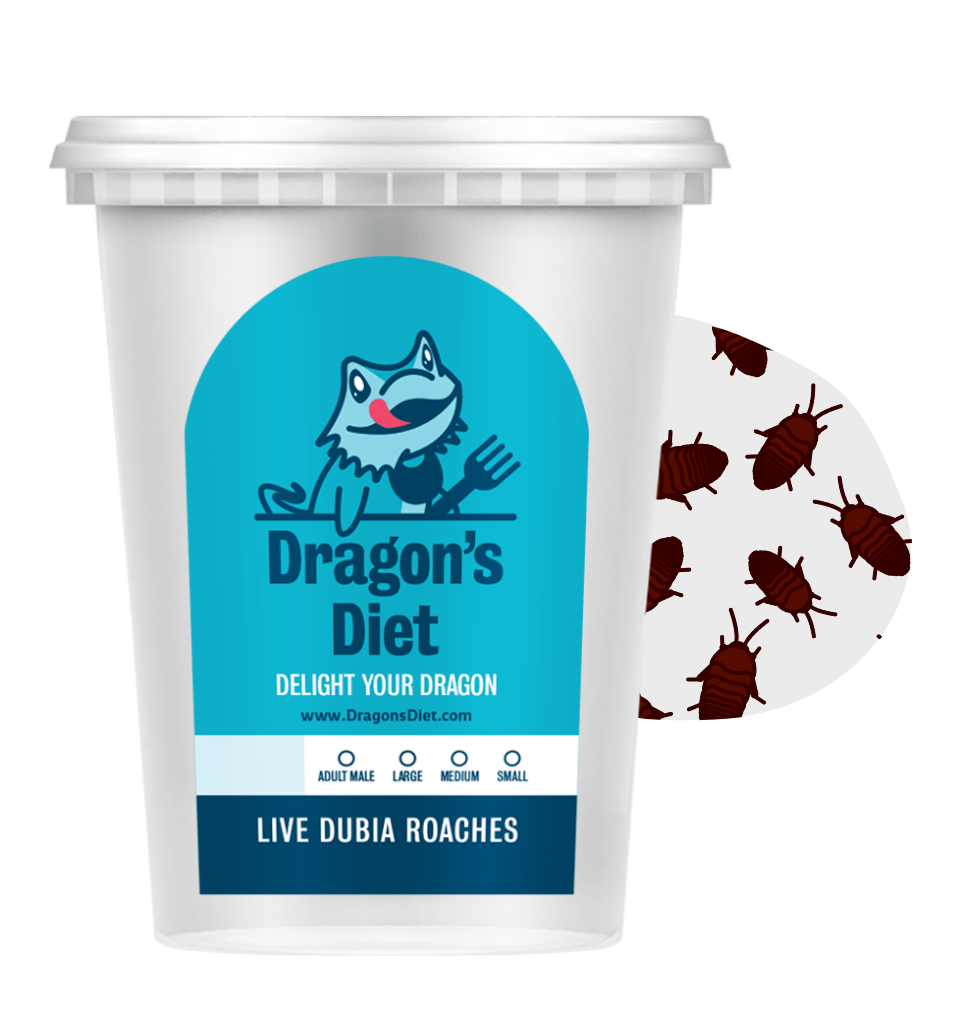There are lots of feeders available for reptiles. Dubia roaches are repeatedly touted as the best option—and for good reason. In fact, Dubia roaches are strong contenders for many exotic pets, such as amphibians and arachnids. Find out the many benefits of Dubia roaches for reptiles and other exotic pets, and which pets can eat Dubia roaches.
Why Are Dubia Roaches Good Feeders for Reptiles?
Nothing is perfect. But as far as feeder insects go, Dubia roaches sure come close! Here are some of the perks for your reptile:
- Easy on the digestion. Because Dubia roaches have less chitin—a fibrous substance found in insects’ exoskeletons—than other feeders, they are easier to digest.
- Full of nutrients. Dubia roaches are low in fat and high in protein and calcium, making them a nutritious feeder option. It’s notable that although Dubia roaches (like most feeders) contain less calcium than phosphorus, you can remedy that by gut loading them with calcium-rich veggies and greens, and by dusting them with calcium powder like our Reptile Greens and Calcium Powder.
- Easy to gut load. In the wild, Dubia roaches don’t have regular access to nutritious fruits and veggies. They eat just about anything they can find, including rotting plants. Their digestive system is built to make use of any nutrients they can glean, and they can consume up to three times their weight. This makes them ideal for gut loading with the nutrients your dragon needs.
- They live a long time. Compared to other feeders, Dubias have a long lifespan. When they are well cared for (which doesn’t take much effort), they can live up to a year or even longer.
- They get your reptile interested in feeding. Dubia roaches aren’t as speedy and frenetic as crickets (which can be overwhelming for some pets), but they’re not sluggish or slow either. Their pace tends to be pretty effective at stimulating your reptile’s wild side, getting them excited to hunt down their prey.
-
A size for every pet. Last but not least, Dubia roaches come in plenty of sizes—and they are edible at all stages of development—making it fairly easy to find an ideal size for your reptile.
Pro Tip: To prevent choking, make sure you know what size Dubia roach is appropriate for your particular reptile or exotic pet. For bearded dragons, this means the insect should be no bigger than the space between your dragon’s eyes.
Dubia roaches have some great benefits for pet owners, too:
- They’re easy to care for.
- They won’t infest your home. Dubia roaches can only breed in a tropical environment. Without high temperatures and high humidity levels, they can get lethargic and slow. This makes an infestation highly unlikely if your roaches manage to get loose in your home.
- They’re quiet (unlike crickets or other noisy feeders).
- They don’t carry parasites and don’t have an odor.
- They’re easy to contain because they can’t jump or fly, and they can’t climb up smooth or slick surfaces. So it’s unlikely they’ll escape their enclosure. (While male Dubia roaches do have wings, the only thing they can really do is flutter them. This can help soften a fall but it isn’t technically flying. So don’t be alarmed if you see this happen—for example, if a roach jumps off an egg carton in the enclosure.)
- They’re not picky eaters. Dubia roaches will eat almost anything, even garbage or bits of paper. This makes them easy to feed and, as we already mentioned, easy to gut load!
- Oh, and they won’t bite you! (Although you should still wear gloves when handling them, because some people do develop an allergy to roaches, which we discuss later in this blog post.)
What Reptiles & Amphibians Can Eat Dubia Roaches?
Dubia roaches are a delicious, nutritious feeder for lots of reptiles and amphibians. Here are some of the exotic pets that can eat (and tend to love) Dubia roaches.
Frogs & toads, including:
- African bullfrog
- Burmese chubby frog
- Oriental fire bellied toad
- Pacman frog
- White’s tree frog
Geckos, including:
- African fat-tailed gecko
- Chahoua gecko
- Chinese cave gecko
- Crested gecko
- Gargoyle gecko
- Giant day gecko
- Giant leaf-tailed gecko
- Leachie gecko
- Leopard gecko
- Lined leaf-tailed gecko
- Mossy leaf-tailed gecko
- Mourning gecko
- Standing’s day gecko
- Tokay gecko
- Viper gecko
Lizards, including:
- Argentine tegu
- Bearded dragons, of course!
- Chameleons (Cuban false chameleon, veiled chameleon, Jackson’s chameleon, Panther chameleon)
- Chinese water dragon
- Collared lizard
- Columbian tegu
- Green anole
- Sudan plated lizard
Skinks, including:
- Eastern blue tongue skink
- Emerald tree skink
- Fire skinks
- Indonesian blue tongue skink
- Irian jaya blue tongue skink
- Northern blue tongue skink
- Ocellated skink
- Red-eyed crocodile skink
- Sandfish skink
- Tanimbar blue tongue skink
Turtles, including:
- Eastern box turtle
- Ornate box turtle
- Painted turtle
- Red-eared slider
- Three-toed box turtle
Additionally, even pet tarantulas and scorpions can eat Dubias!
Dubia Roaches as Feeders…Is There a Downside?
As we mentioned before, nothing is completely perfect! Here are some potential cons to consider before ordering your first batch of live Dubias.
- Potential allergy. It is possible to develop an allergy to the Dubia roach, although this seems to be more common among breeders due to more frequent handling and working with higher numbers of roaches. To mitigate the risk of developing an allergy, limit contact with the roaches and wear gloves when you feed them or handle them. If you are concerned about developing an allergy, it's a good idea to talk to your doctor or allergist to weigh the risk.
- Legal restrictions. Dubia roaches are illegal to keep in Florida, Hawaii, and Canada. So if you live in one of those locations, you’ll have to find a different feeder. Also, make sure that the breeder you’re purchasing Dubias from can ship to your state; here at Dragon’s Diet, for example, we don’t ship to Alaska because it’s almost impossible to ensure live arrival. Other companies may have restrictions as well. Always check before you buy.
Takeaway: Dubia roaches are excellent feeder insects for many exotic pets, including reptiles, amphibians, and arachnids. They are nutritious, rich in protein, easy to digest, and ideal for gut loading. Dubia roaches are illegal to keep in Florida and Hawaii, and some states have restrictions on shipping. Check with your seller and the state laws before ordering.
Sources and further reading:
https://reptifiles.com/lizard-care-sheets/
https://backwaterreptilesblog.com/dubia-roaches-blaptica-dubia-feeder-insects/
Dragon’s Diet offers humanely raised Dubia roaches that are gut-loaded with highly nutritious foods immediately prior to shipping. Our Dubia roaches are also backed by our live delivery guarantee. Shop Dubia roaches today!



